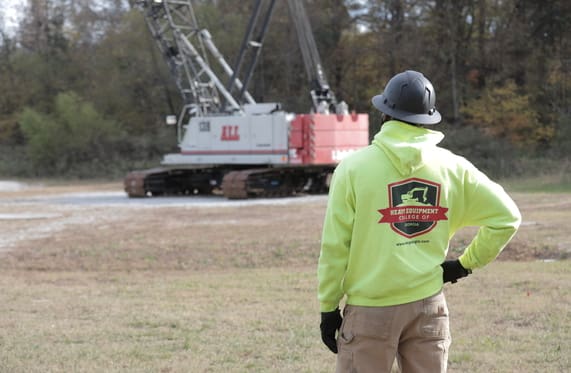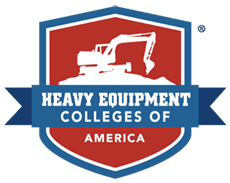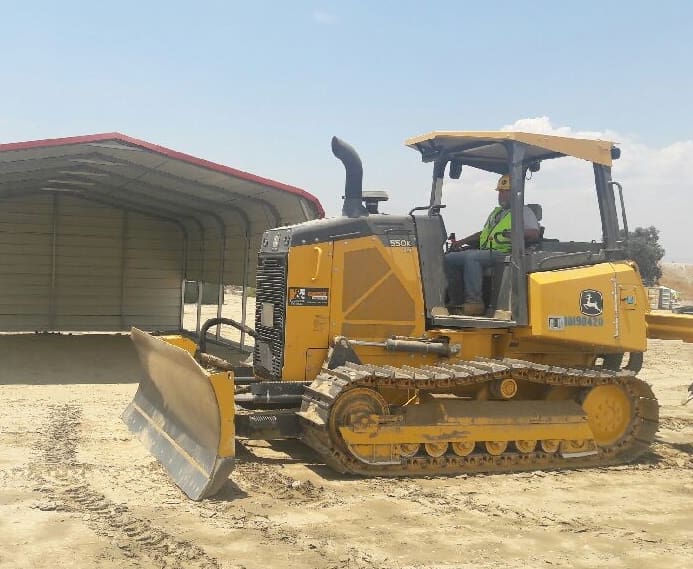In many ways, heavy equipment machines and their operators helped, and are continuing to help, build America. From roads to bridges to skyscrapers and interstates, the use of heavy equipment has played an integral role in development across the country.
For those of you who are about to enter the workforce for the first time or are considering changing careers to something completely different, enrolling in a heavy equipment program might just be for you. “But what does a heavy equipment training program offer me?” you may be asking…
5 Reasons to Enroll in a Heavy Equipment Training Program
1. Heavy Equipment Jobs Are in Demand
For many people, deciding on their career path can be, and rightfully so, influenced by what kind of jobs are in demand currently and in the future. Jobs in heavy equipment operation happen to fit that bill. According to the Bureau of Labor Statistics (BLS), the number of construction equipment operators (who happen to use heavy equipment) is projected to increase by 12 percent through 2026.
The BLS attributes this increase in part to an expected uptick in infrastructure spending. Anyone who’s taken a ride on one of America’s interstates recently has likely encountered some degree of construction along the way. This is likely to continue, resulting in increased demand for heavy equipment operators as they are part of the process.
An increasing number of baby boomers are going to retire in the coming years, which will also necessitate the recruitment of new heavy equipment operators to the labor force.
2. Training Programs Can Be Completed Sooner
One benefit of opting to enroll in a heavy equipment training program as opposed to an associate’s or bachelor’s degree program is the short length of time spent in school. Many schools, such as Heavy Equipment Colleges of America (HEC), offer programs that can be completed in a matter of a few weeks.
The training programs offered at HEC, for example, are three weeks in length. This means you can complete 2 levels of heavy equipment training and be out in six weeks. Less time spent in school means the sooner you are prepared for employment as an entry-level heavy equipment operator.

3. Immerse Yourself in Safety Techniques
Safety in any occupation is important, but the stakes are even higher in jobs like those involving the use of heavy equipment. The “heavy” in heavy equipment is certainly not a misnomer, so as a worker you need to be careful on the job.
Wearing the proper for the job you are performing goes a long way toward ensuring your personal safety. The right gear also helps minimize bodily harm when mishaps do occur, and they certainly do occur.
In heavy equipment training programs, safety is the most important training you will receive. Instructors in such programs stress the importance of safety in the workplace and operating techniques and precautions. Safety practices are also taught in on-the-job training, though it certainly helps to have a foundational understanding of what some of those practices are prior to showing up for one’s first day on the job. After all, the old adage is “better safe than sorry.”
4. Get a Leg Up on Your Peers
Not everyone who enters the heavy equipment workforce enrolls in a training program at a vocational school or community college. It’s certainly not required, although it certainly helps to know a bit about the work you’ll be doing prior to actually doing it.
Heavy equipment training programs frequently offer tutelage on the operation of a few different kinds of machines. Knowing how to operate different machines can make you more marketable to potential employers.
Being able to do more can enhance your versatility and further your marketability, which can set you up with more options for employment. Additionally, exposure to a greater variety of tasks can help you find what it is that you enjoy doing the most.
5. Start Your Heavy Equipment Career at HEC
In a search for an institution to help you bring your heavy equipment dreams to fruition, look no further than Heavy Equipment Colleges of America (HEC). You can learn the ins, outs and complexities of heavy equipment operation, in addition to lattice boom and mobile crane operation, through programs offered at HEC’s four campuses across the country.
Heavy Equipment Colleges of America prides itself on providing practical heavy equipment education tailored to its students’ individual needs. HEC’s programs implement a healthy balance of both textbook learning and hands-on experience to adequately prepare students for entry-level skilled trade jobs.
HEC has been training aspiring heavy equipment operators for over a decade, and its campuses are approved testing sites for the National Commission for the Certification of Crane Operators (NCCCO).
HEC would be nothing if it were not for the knowledge and guidance provided by its instructors. They have invaluable experience with heavy equipment and cranes, which allows them to pass lessons they learned in the workplace on to aspiring heavy equipment and crane professionals.
The Heavy Equipment Colleges of America offers comprehensive heavy equipment operating courses that can be completed in as little as three weeks. This allows you to save time compared to an associate’s or bachelor’s degree program while also providing you with the knowledge and competence you need to start your new career.
If you are passionate about construction, do not delay. Learn more about the courses offered at Heavy Equipment Colleges of America or to schedule a tour of the campus nearest you, please visit https://heavyequipmentcollege.edu/.

